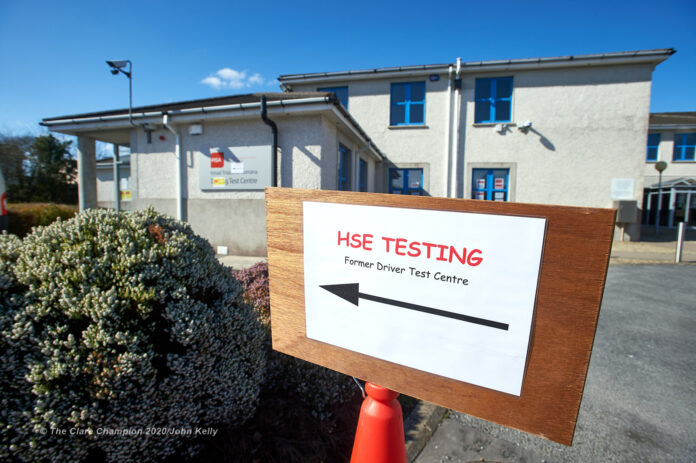The Health Protection Surveillance Centre has today been informed that 17 patients diagnosed with COVID-19 in Ireland have died. There were six new confirmed cases in Clare today, bringing the figure to 40.
· Eight deaths were located in the east, three in the south, three in the north-west and three in the west of the country
· Patients included four females and 13 males
· Median age of today’s reported deaths is 84
· Eight patients were reported as having underlying health conditions
There have now been 71 COVID-19 related deaths in Ireland.
The Health Protection Surveillance Centre has been informed of 325 new confirmed cases of COVID-19 in Ireland, as at 1pm today, Tuesday.
There are now 3,235 confirmed cases of COVID-19 in Ireland.
The HSE is now working to identify any contacts the patients may have had to provide them with information and advice to prevent further spread.
To date, 30,213 tests have been carried out in laboratories across the country, as of midnight, Monday 30 March.
Over the past week, the positivity rate for tests carried out increased from 6% to 15%, as per the objective of our new case definition.
Today’s data from the HPSC, as of midnight, Sunday 29th March (2,677 cases), reveals:
- 49% are male and 49% are female, with 118 clusters involving 494 cases
- 22% of clusters located in private houses, 20% located in nursing homes and 18% located in hospitals
- Median age of confirmed cases is 47 years
- 703 cases (26%) have been hospitalised
- Of those hospitalised, 113 cases have been admitted to ICU
- 647 cases are associated with healthcare workers
- Dublin has the highest number of cases at 1,487 (55% of all cases) followed by Cork with 238 cases (9%)
- Of those for whom transmission status is known: community transmission accounts for 51%, close contact accounts for 26%, travel abroad accounts for 23%
The National Public Health Emergency Team met today and made the following recommendations;
- To focus contact tracing on suspect cases within prioritised groups. The HPSC to update guidance to GPs and contact tracing teams.
- Contact tracing to encompass the period from 48 hours prior to the onset of symptoms given the risk of asymptomatic transmission.
- In response to infections in long term residential care (nursing homes, disability and mental health) and homecare settings NPHET will work with the HSE to identify a number of measures which can be taken to strengthen support to staff and providers of nursing home care.
Dr. Tony Holohan, Chief Medical Officer, Department of Health, said; “The measures that we have recommended today should significantly enhance the preparedness and response to cases and outbreaks in nursing homes and other residential settings.
“As we have said from the beginning our efforts must be focused on protecting the most vulnerable to COVID-19 and these recommendations announced today seek to achieve this.”
A native of Ennis, Colin McGann has been editor of The Clare Champion since August 2020. Former editor of The Clare People, he is a journalism and communications graduate of Dublin Institute of Technology.



